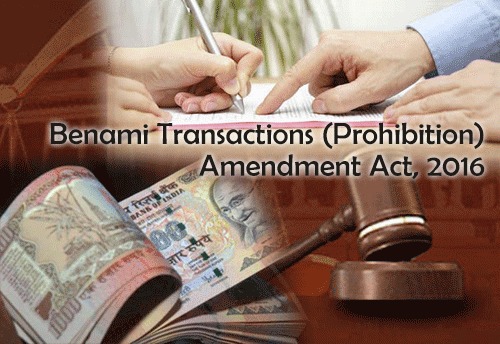
Kerala High Court: Paying Tax on Income Does Not Protect Benami Property Deals from Legal Action
Court says disclosure under Income Tax Act cannot shield benami transactions from investigation.
Judgment reinforces government’s anti-benami law and strengthens property accountability.
By Our Legal Correspondent
New Delhi: November 12, 2025:
In a significant ruling, the Kerala High Court has clarified that disclosure of income and payment of tax under the Income Tax Act does not bar proceedings under the Prohibition of Benami Property Transactions Act, 1988. The judgment emphasizes that paying tax on undisclosed income does not automatically make property transactions legitimate if they fall within the definition of benami.
This ruling is expected to have far-reaching consequences for individuals and businesses involved in property transactions, particularly those attempting to regularize questionable deals by paying taxes.
Background of the Case
The case arose when authorities initiated proceedings under the Benami Transactions Act against individuals who had disclosed income and paid taxes under the Income Tax Act. The petitioners argued that once income was disclosed and tax paid, no further proceedings should be initiated under the Benami Act.
However, the Kerala High Court rejected this argument, stating that the two laws operate independently. While the Income Tax Act deals with taxation of income, the Benami Act addresses ownership and legality of property transactions.
Court’s Observations
The High Court made several important observations:
- Separate legal frameworks – The Income Tax Act and the Benami Transactions Act serve different purposes. Payment of tax does not erase the illegality of benami transactions.
- Benami law is preventive – The Benami Act is designed to prevent individuals from concealing ownership of property through proxies or false names.
- Tax payment does not confer legitimacy – Even if tax is paid on undisclosed income, the property acquired through benami transactions remains subject to investigation and confiscation.
Also Read: Allahabad High Court Orders Police Verification for Passports Must Be Completed Within Four Weeks
The court emphasized that benami transactions undermine transparency in property ownership and cannot be legitimized simply by paying taxes.
The Verdict
The Kerala High Court upheld the validity of proceedings under the Benami Transactions Act, ruling that tax disclosure does not bar authorities from investigating and confiscating benami properties.
This judgment strengthens the government’s ability to pursue cases of black money and fraudulent property dealings, even when individuals attempt to shield themselves by paying taxes.
Also Read: Supreme Court Slams Jharkhand High Court for Two-Year Delay in Delivering Reserved Judgment
Impact on Individuals and Businesses
The ruling has wide implications:
- For individuals: Those who disclose income and pay taxes cannot assume immunity from benami proceedings.
- For businesses: Corporate entities must ensure that property transactions are transparent and comply with ownership laws.
- For enforcement agencies: The judgment empowers authorities to pursue benami cases more aggressively, even when taxes have been paid.
Expert Opinions
Legal experts have welcomed the ruling, calling it a “clarification of the law” that strengthens anti-benami enforcement. According to tax lawyers, many individuals believed that paying taxes on undisclosed income would protect them from further legal action. The judgment makes it clear that tax compliance does not override property ownership laws.
Economists also believe the ruling will deter individuals from engaging in benami transactions, thereby promoting transparency in India’s real estate sector.
Wider Context
The Prohibition of Benami Property Transactions Act, 1988, was strengthened in 2016 to give authorities more power to investigate and confiscate benami properties. The law defines benami transactions as property held in the name of another person, where the real beneficiary is different.
India has long struggled with benami property dealings, which are often used to conceal black money and evade accountability. The Kerala High Court’s ruling adds to a growing body of judgments that reinforce the government’s crackdown on such practices.
Conclusion
The Kerala High Court’s ruling that disclosure of income and payment of tax under the Income Tax Act does not bar proceedings under the Benami Transactions Act is a landmark in India’s fight against black money. By clarifying that tax compliance does not legitimize benami transactions, the court has strengthened enforcement mechanisms and reinforced the principle of transparent property ownership.
This judgment is expected to influence future cases across India, ensuring that individuals and businesses cannot misuse tax disclosures to shield illegal property dealings.